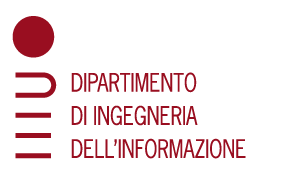Submitted by admin on
Abstract:The talk will present our research at the Biomedical Cybernetics Group that I established about three years ago in Dresden. We adopt a transdisciplinary approach integrating information theory, machine learning and network science to investigate the physics of adaptive processes that characterize complex interacting systems at different scales, from molecules to ecosystems, with a particular attention to biology and medicine. Our theoretical effort is to translate advanced mathematical paradigms typically adopted in theoretical physics (such as topology, network and manifold theory) to characterize many-body interactions in complex systems and quantitative biomedicine. We apply the theoretical frameworks we invent in the mission to develop computational tools for systems and network analysis. In particular, in biomedicine we deal with: prediction of wiring in biological networks, combinatorial and multiscale biomarkers design, precision biomedicine, drug repositioning and combinatorial drug therapy. In general, we devise theoretical models of structural organization in complex networks and we leverage this knowledge to create novel and more efficient algorithms and to perform advanced analyses and predictions of patterns in complex systems. This talk will focus on the Local Community Paradigm (LCP) which is a theory at the basis of epitopological learning in complex networks. LCP, which was inspired by Hebbian learning, was proposed to model local-topology-dependent link-growth in complex networks, therefore it is useful to devise topological methods for link prediction in monopartite and bipartite networks, but also as a topological measure to quantify the tendency of a network to be organized in local community. In particular, we will discuss the impact of LCP for pioneering topological methods for network-based drug-target interaction prediction and repositioning, and as a marker for the rewiring correlates of pain in the brain time-varying functional connectomes. Biography:Carlo Vittorio Cannistraci is a theoretical engineer with a background in biomedical cybernetics. He is currently head of the Biomedical Cybernetics Group at the Centre for Molecular and Cellular Bioengineering (CMCB) and faculty member of the Department of Physics in the Technical University Dresden. His area of research embraces information theory, machine learning and complex network theory including also applications in computational network and systems biomedicine. Nature Biotechnology selected Carlo’s article (Cell 2010) on machine learning in developmental biology to be nominated in the list of 2010 notable breakthroughs in computational biology. Circulation Research featured Carlo’s work (Circulation Research 2012) on leveraging a cardiovascular systems biology strategy to predict future outcomes in heart attacks, commenting: “a space-aged evaluation using computational biology”. The Technical University Dresden honoured Carlo of the Young Investigator Award 2016 in Physics for his recent work on the local-community-paradigm theory and link prediction in bipartite networks.






